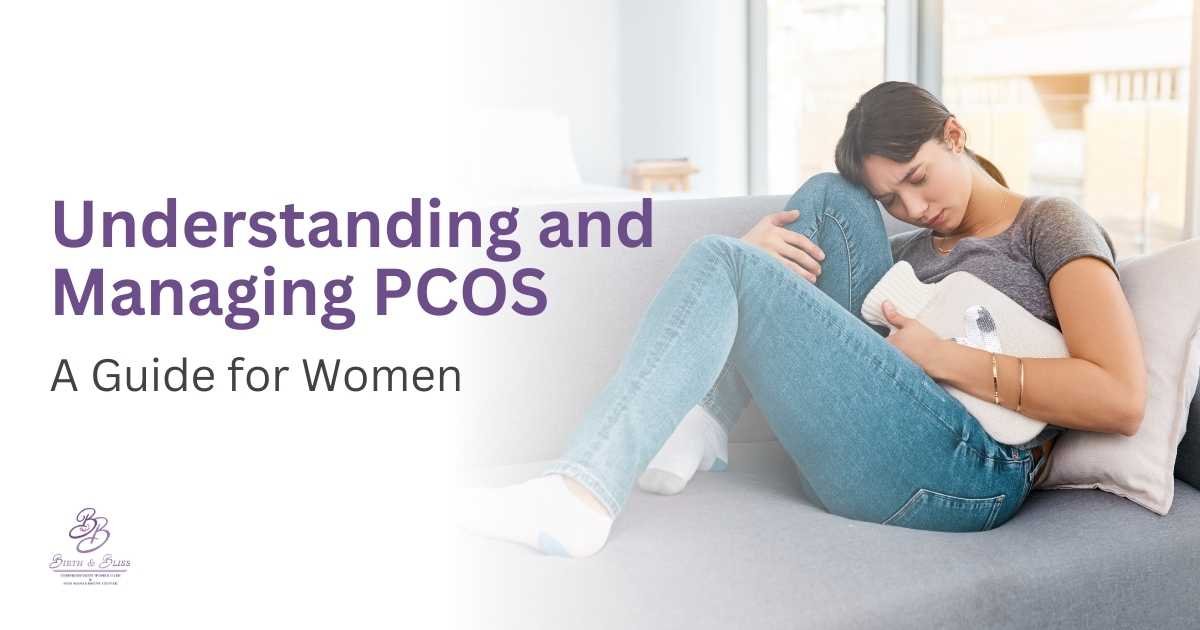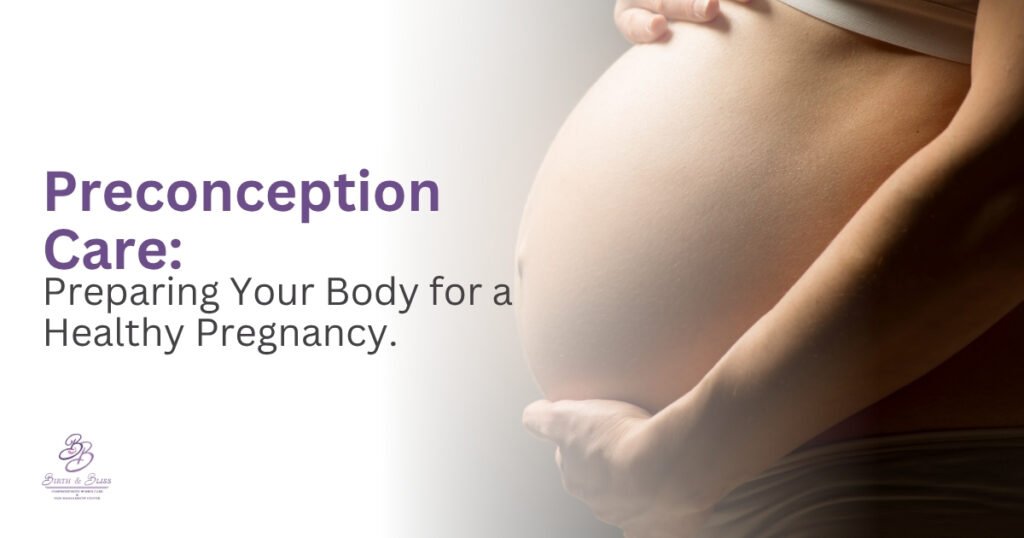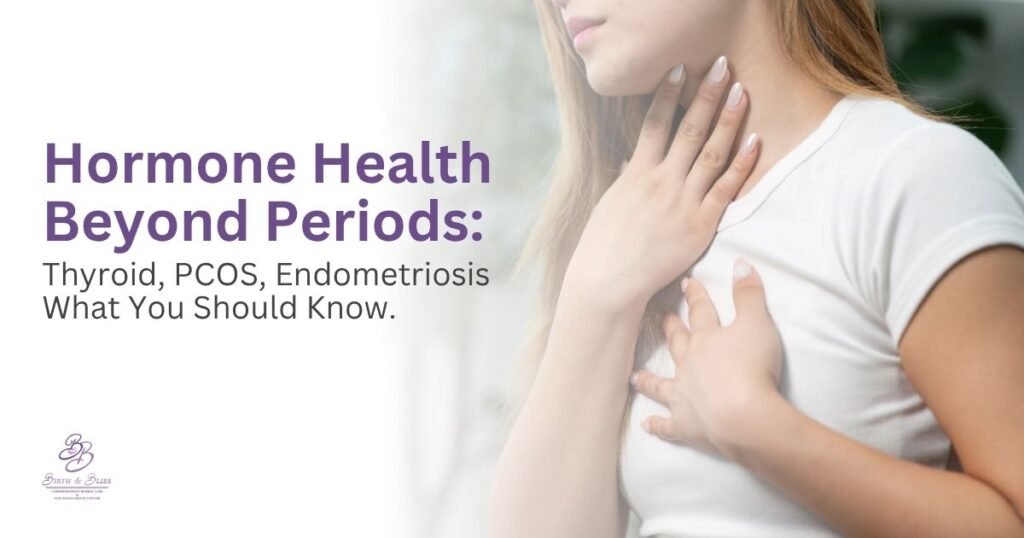
Polycystic Ovarian Syndrome (PCOS) affects millions of women around the world and is one of the most common endocrine disorders in women of reproductive age. At Birth & Bliss, we believe in empowering women with knowledge, treatment options, and support. This article aims to help you understand PCOS better, recognize its symptoms, and explore how we manage it holistically and medically.
What is PCOS?
PCOS is a hormonal imbalance characterized by multiple small cysts (fluid-filled sacs) in the ovaries, along with irregular ovulation, high levels of androgens (so-called “male hormones”), or insulin resistance. It is not just a reproductive health issue — it can affect metabolic health, skin, and overall well-being.
Common Symptoms of PCOS
Women with PCOS may experience one or more of the following:
-
Irregular menstrual cycles or missed periods
-
Heavy or prolonged bleeding
-
Difficulty conceiving (infertility or subfertility)
-
Acne, oily skin
-
Excess facial and body hair (hirsutism)
-
Thinning scalp hair or male-pattern hair loss
-
Weight gain or trouble losing weight
-
Darkened skin patches (acanthosis nigricans), often in neck folds
-
Mood swings, depression, or anxiety
-
Fatigue
Because PCOS presents differently in each person, diagnosis hinges on a combination of symptoms, hormonal tests, and imaging (ultrasound) to evaluate ovarian morphology.
Why PCOS Matters Beyond the Reproductive System
PCOS doesn’t just affect fertility and menstruation. It has broader health implications:
-
Metabolic risks: Many women with PCOS have insulin resistance, which increases the risk of prediabetes, type 2 diabetes, obesity, and dyslipidemia.
-
Cardiovascular health: Uncontrolled insulin resistance and obesity can raise the risk of hypertension, atherosclerosis, and adverse cardiac events over time.
-
Endometrial health: Chronic irregular ovulation can lead to thickening of the uterine lining (endometrial hyperplasia), increasing the risk of bleeding and, rarely, endometrial cancer.
-
Emotional/mental well-being: Body image issues, infertility stress, hormonal mood shifts — all can take a toll on mental health.
So, timely and comprehensive care is key.
How Birth & Bliss Approaches PCOS Management
At our clinic in Dwarka, New Delhi, our approach to PCOS is multidisciplinary, personalized, and holistic. Here’s what you can expect:
1. Detailed Assessment & Diagnosis
-
Detailed medical history, including menstrual history, weight changes, family history of diabetes or PCOS
-
Hormonal assays (LH, FSH, androgens, insulin, thyroid profile, prolactin, etc.)
-
Glycemic screening (fasting glucose, insulin levels, HbA1c)
-
Lipid profile
-
Pelvic ultrasound to assess ovarian morphology and endometrial thickness
2. Lifestyle Modification First
Lifestyle interventions remain the backbone of PCOS care. We guide patients on:
-
Balanced, low-glycemic diet (to improve insulin sensitivity)
-
Regular physical activity (cardio + resistance training)
-
Weight loss strategies (even a modest 5–10% weight reduction can vastly improve hormonal profiles)
-
Stress management, sleep hygiene, and mental wellness support
3. Medical Therapy (Tailored to the Individual)
Depending on each woman’s symptoms, goals, and comorbidities, we may offer:
-
Hormonal therapies: Combined oral contraceptives, progestins, or anti-androgens
-
Insulin sensitizers: Metformin or other medications to improve insulin response
-
Fertility treatments: If pregnancy is the goal, we consider ovulation induction (letrozole, clomiphene) or assisted reproductive technologies (IUI/IVF)
-
Adjunct therapies: Supplements (under supervision), cosmetic treatments for hirsutism or acne, skincare, etc.
4. Monitoring & Follow-Up
PCOS is a chronic condition that requires periodic reassessment. We monitor:
-
Hormonal levels
-
Glycemic markers
-
Lipid profile
-
Weight and BMI
-
Endometrial health (if there’s prolonged irregular bleeding)
-
Psychological well-being
We also adjust treatments over time based on response, side effects, and changing goals (e.g. future fertility vs symptom control).
Tips for Living with PCOS
-
Track your cycles, symptoms, and lifestyle changes — this helps you and your doctor make informed decisions.
-
Be patient — treatment doesn’t yield instant results, especially with lifestyle changes.
-
Seek a support system — whether it’s a counselor, PCOS support groups, or friends and family.
-
Work with a multidisciplinary team: gynecologists, endocrinologists, nutritionists, psychologists.
-
Don’t skip routine health checks — early intervention in metabolic risks is important.
When to See a Gynecologist
If you notice any of the following, it’s time to consult a specialist:
-
Irregular or no periods for several months
-
Difficulty getting pregnant
-
Unexplained weight gain, worsening acne or hair growth
-
Heavy or prolonged bleeding
-
Symptoms of insulin resistance (excessive hunger, excessive thirst)
Final Thoughts
PCOS can appear daunting, but it is very manageable with the right care, mindset, and support. At Birth & Bliss, we stand by you on every step — from diagnosis to customized treatment, monitoring, and well-being support. Our mission is not just to treat, but to help you thrive.
If you’d like to consult with Dr. Gazal Garg (Obstetrics & Gynaecology) or learn more about our PCOS services, feel free to book an appointment or write to us at birthnbliss@gmail.com. Let’s take a confident step toward hormonal balance, health, and wellness — together.


